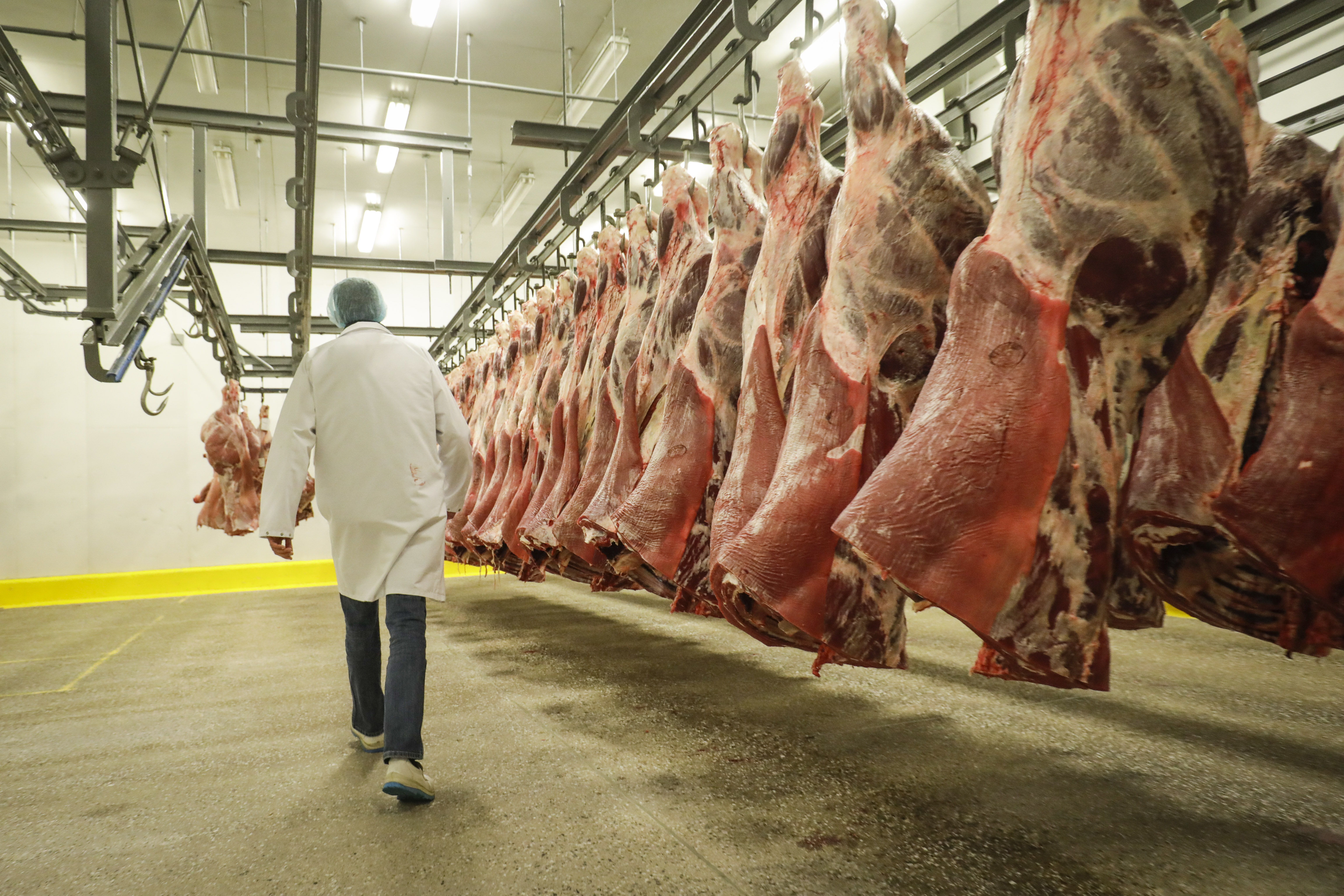Despite increased attention to animal welfare, consumers still choose the cheapest meat

Although people are increasingly concerned about the welfare of farmed animals, they still too often choose the cheapest and least animal-friendly meat when shopping.
According to the EU's latest Attitudes of Europeans towards Animal Welfare survey, 84 per cent of Europeans believe farm animals should be better protected in their country than at present.
Some 60 per cent of respondents said they would be prepared to pay more for products from welfare-friendly farming systems. Around a quarter would pay up to 5 per cent more for welfare-friendly food.
Mega-farms
However, in practice, there's little evidence of this attitude, Wim Moyaert of the Flemish farmers' movement Boerenforum told MO* magazine. He says consumers still often choose cheap meat, which perpetuates intensive livestock farming. "It reinforces our fear that both policy and industry will focus more on efficiency in the future, which could lead to a further increase in the number of animals in closed mega-farms."
According to Moyaert, there is a need for awareness-raising not only among politicians but also among consumers. "Why do people understand that there are different price ranges for cars or smartphones, but not for meat? Chicken used to be a luxury product", he says.
Slaughterhouses
Alongside industrial livestock farming, slaughterhouses have evolved into mass processing places where working conditions are poor, says Moyaert. "People from abroad, often workers from Eastern Europe, must come here to do the dirty work. If we don't treat these people with the respect they deserve, why should they do it to our livestock?"
In the past, he says, the art of slaughtering was passed down from generation to generation. "Due to increasing industrialisation, this craft has almost been lost. We need to revalue the profession of butcher to attract more skilled workers to the sector, which will benefit both human and animal welfare."
Mobile slaughter
The introduction of mobile slaughter or euthanasia units can help to reduce animal stress and suffering by allowing slaughter to take place on the farm. European Regulation 1099/2009 on the protection of animals at the time of killing enables the use of mobile slaughterhouses but does not lay down specific rules. This decision is left to member states.
Mobile units are already in use in several European countries, including Germany, Italy and the Netherlands, privately and through government initiatives. However, it is only cost-effective for slaughtering poultry. Slaughtering cattle or pigs would require many kills per day, which small farmers generally do not do.
Lab-grown meat
Lab-grown meat, or cultured meat, is increasingly being presented as an alternative to industrial livestock farming. It's a form of cellular agriculture in which meat is produced by growing animal cells in the laboratory. This technology uses tissue engineering techniques initially developed for applications in regenerative medicine. As a result, meat is made without the need to slaughter animals.
In September, several scientists and former EU commissioners called on Europe to commit 25 billion euros to new food technologies, including lab-grown meat. The investment is aimed at accelerating the shift from animal to plant-based proteins.
However, experts say that lab-grown meat is unlikely to cause a significant supermarket revolution in the next few years. It is still relatively expensive to produce and has not yet been approved for human consumption in the EU.
© BELGA PHOTO THIERRY ROGE
Related News



